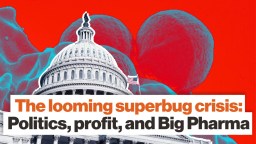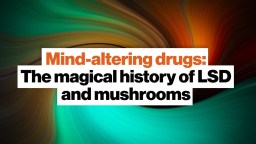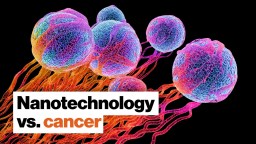medical research
The more we learn about the microbiome, the more the pieces are fitting together.
Here’s how we stop a health crisis before it wreaks havoc on us.
▸
15 min
—
with
Scientists may have seen a way to cure a maddening symptom of hearing loss.
Three academic papers from Australia shows sizable bone spurs growing at the base of our skulls.
The study highlights the incredible neuroplasticity of the brain.
Could ketosis be the answer to preventing deadly seizures during deep-diving missions?
That’s only counting revenues from taxes, fees, and licenses.
Can dirt help us fight off stress? Groundbreaking new research shows how.
FDA guidelines say men can’t donate blood if they’ve had sex with another man in the past 12 months.
How can a misfolded protein be behind some of the strangest and deadliest diseases out there?
Why did government officials stop psychedelics from reaching mainstream culture?
▸
22 min
—
with
Extensive research at Yale signals the future of personalized medicine
New technology could predict cancer up to 5 years in advance.
We know exercise is necessary, but this research takes it to another level.
A new study looks at astronauts’ brains after they come back home.
It’s been difficult to research the illicit drugs, but we’re slowly building a better understanding of their potential.
Neuroscience is working to conquer some of the human body’s cruelest conditions: Paralysis, brain disease, and schizophrenia.
▸
5 min
—
with
No one should be drinking more than 8oz. a day. Here’s why.
We may be able to detect cancer soon by simply peeing on a stick.
▸
8 min
—
with
A new study finds such kids excel in all cognitive areas.
Artificial intelligence is a sophisticated tool in the fight against despression.
▸
3 min
—
with
What can 3D printing do for medicine? The “sky is the limit,” says Northwell Health researcher Dr. Todd Goldstein.
Two new studies might have identified whether or not patients will respond to chemotherapy.
One of the world’s deadliest diseases, malaria takes the life of a child every two minutes.
No, depression is not just a type of “affluenza” — poor people in conflict zones are more likely candidates
A balanced discussion of the realities, the mythologies, and the concerns surrounding cutting-edge brain research.
Believe it or not, for a few decades, giving people “milk transfusions” was all the rage.
Might microdosing LSD and psilocybin be a safe, effective way to treat depression and other disorders?
They seem to have a mechanism for caring similar to ours.





























